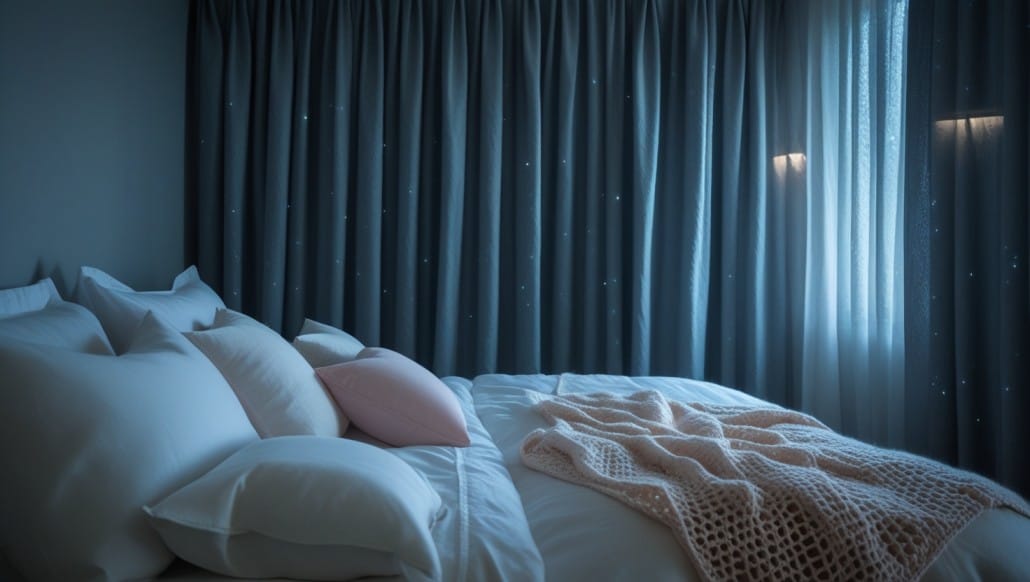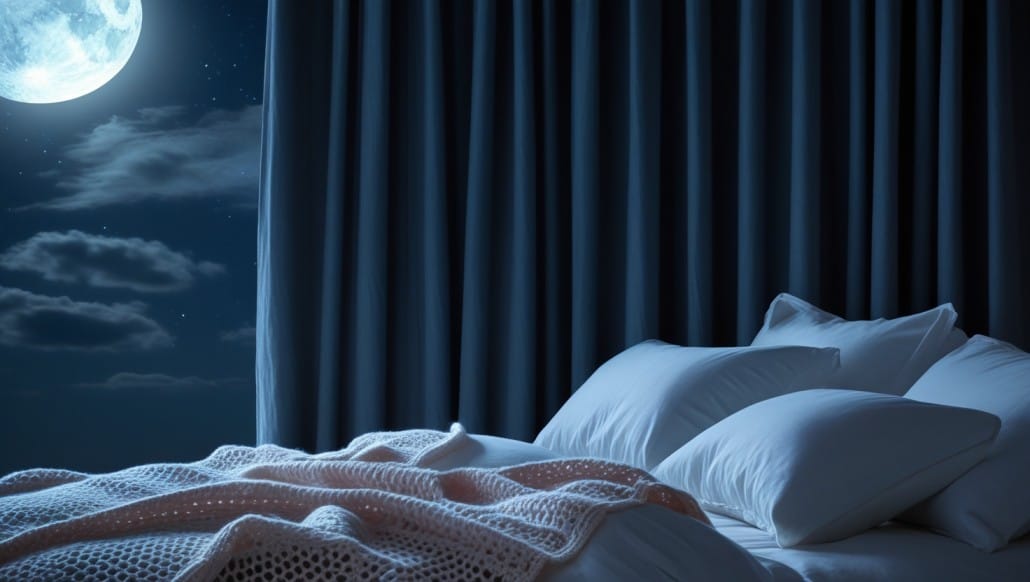Why You Wake Up at 3 A.M. and Can’t Fall Back Asleep
Struggling with 3 A.M. wake-ups? Learn simple, science-backed strategies to reset your sleep, boost energy, and wake up fully refreshed.

Ever jolt awake at 3 A.M., wired but exhausted, wondering what went wrong? You’re not broken—you’re catching a glimpse of your body’s hidden rhythms in action.
If you’re new to dialing in your sleep habits, these early-morning wake-ups can feel like sabotage. The truth is, you can reset this pattern once you understand what’s really happening.
Get ready to take control of your nights—and finally wake up feeling powerful, not powerless.
Understanding the 3 A.M. Wake-Up Call
First, understand this: your body runs on a finely tuned internal clock, your circadian rhythm. It's not just about when you fall asleep; it’s about how your sleep cycles unfold across the night.
Around 3 A.M., your core body temperature hits its lowest point, and your levels of cortisol — your alertness hormone — start to rise. This shift primes your body for the coming morning.
When everything is balanced, you’ll barely notice it. But when stress, disrupted routines, poor diet, or a jacked-up nervous system get involved, that normal blip can kick you straight into high alert.

How Late-Night Habits Sabotage Your Sleep
Late-night habits pour gasoline on the fire. Blue light from screens doesn't just keep you awake longer—it scrambles your melatonin production, the hormone that signals your body it's time to sleep.
Without proper melatonin flow, your sleep cycles stay shallow, leaving you vulnerable to even minor disruptions.
Alcohol? It’s a sneaky sleep thief. It might knock you out fast, but it slices up your REM cycles and turbocharges those early-morning awakenings. Even your dinner choices matter more than you think.
A meal heavy on simple carbs without enough protein or fat can spike your blood sugar, only for it to crash hard hours later, triggering a cortisol surge that jolts you awake.
The Role of Stress and Anxiety
Your mind isn’t innocent either. Stress and anxiety deserve their own spotlight here. High nighttime cortisol from mental overdrive primes your body to snap awake at the slightest internal cue.
It’s like trying to sleep with one foot still pressing the gas pedal. If your mind is rehearsing meetings, conversations, or your endless to-do list, you're basically inviting yourself into a 3 A.M. wake-up call.
Chronic stress doesn’t just make it harder to fall asleep—it keeps you cycling through shallow, fragmented sleep all night long.
Setting the Stage for Better Sleep
Anchor Your Wake-Up Time
Fixing it starts way before bedtime. Anchor your wake-up time—yes, even on weekends. This consistency trains your circadian rhythm to stabilize naturally.
Think of it like setting your body's internal GPS. When your brain knows when to wake and when to rest, it stops second-guessing itself at 3 A.M.
Build a Wind-Down Routine
Build a true wind-down window every night. Kill the screens an hour before bed. Lower the lights, make the environment boring and predictable.
Stretching, meditation, slow breathing—these activities tell your nervous system it’s safe to unplug.
Reading real, paper books, listening to calming music, or taking a warm shower can further cue your body into a sleep-ready state. Keep it simple. Keep it consistent.
Create a Sleep-Friendly Environment
Your room needs to feel like a cave: cool, dark, and quiet. Temperature matters. Sleep experts recommend around 65 degrees Fahrenheit for optimal deep sleep.
Blackout curtains, weighted blankets, and white noise machines aren’t luxuries—they’re essentials. They block out unpredictable sounds and lights that might stir you up when you’re most vulnerable to waking.
What to Do If You Wake Up
If you do wake up, the key is not to panic. Don’t stare at the clock. Don’t lie there replaying your worries. Get up if you’ve been awake more than 15–20 minutes.
Keep the lights dim. Engage in something quietly monotonous—a low-stakes book, gentle stretching, or even simple breathwork.
Avoid your phone at all costs; one glimpse of notifications and you’re tossing gasoline back onto the fire. The goal is to stay physically relaxed and mentally bored, allowing sleep pressure to rebuild naturally.
Strengthening Your Sleep Through Daytime Habits
What you do during the day builds your nighttime success. Get outside early in the day. Morning light helps reset your circadian clock and solidifies your nighttime melatonin flow.
Even ten minutes of outdoor light exposure before 10 a.m. can make a noticeable difference.
Move your body daily. It doesn’t have to be a hardcore workout—even a brisk walk signals your brain to line up your energy peaks and valleys properly.
Balance your meals: stable blood sugar throughout the day prevents late-night hormone chaos. Prioritize whole foods, fiber, healthy fats, and quality protein to give your body the steady fuel it craves.
Manage caffeine like a weapon—use it strategically. A strong coffee at 7 a.m. can sharpen your focus; that same coffee at 3 p.m. can wreck your sleep twelve hours later. Understand your personal caffeine cutoff time and stick to it.
If you're serious about optimizing your sleep, build evening rituals that naturally ease you into rest.
Journaling to offload mental clutter, guided meditations, aromatherapy with lavender or chamomile—these aren't just fluffy extras. They're cues that strengthen your brain’s association between nightfall and deep rest.
Small, strategic changes compound fast. You don’t have to rebuild your entire life to start sleeping better. You just have to set the right signals and let your body do what it’s built to do. Sleep is a biological rhythm, not a battleground.
Once you tune your daily environment to support it, your nights stop being something you fight through and start being the recovery sanctuary your body demands.
Final Thoughts
Waking up at 3 A.M. isn’t just annoying—it’s your body's SOS call for better rhythms and smarter habits. It's fixable. Set a consistent wake-up time. Build a wind-down routine that actually soothes your brain.
Master your environment. Move, eat, and live in ways that keep your energy steady. Sleep isn’t just a box to check—it's your ultimate recovery tool and the foundation of true wellness.
The power to change your nights and supercharge your days is already in your hands. Start small. Start tonight. Show up for your future self—energized, clear-headed, and fully alive. Sleep is your edge. Claim it.




